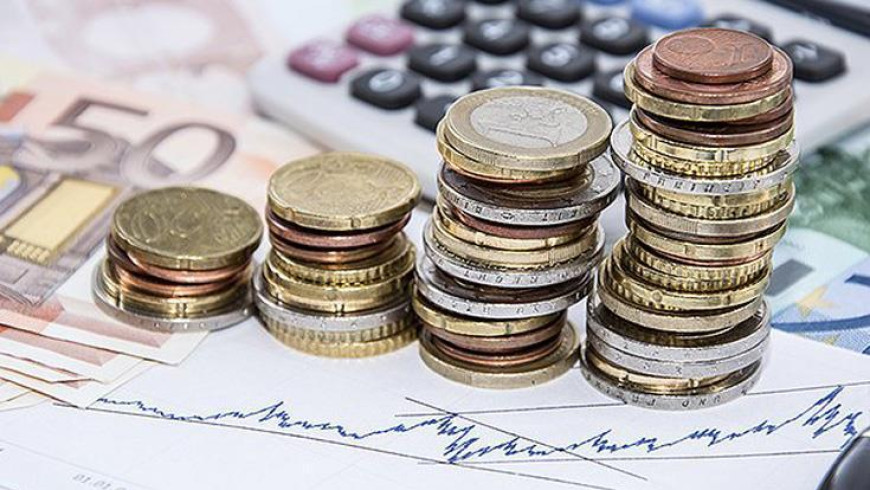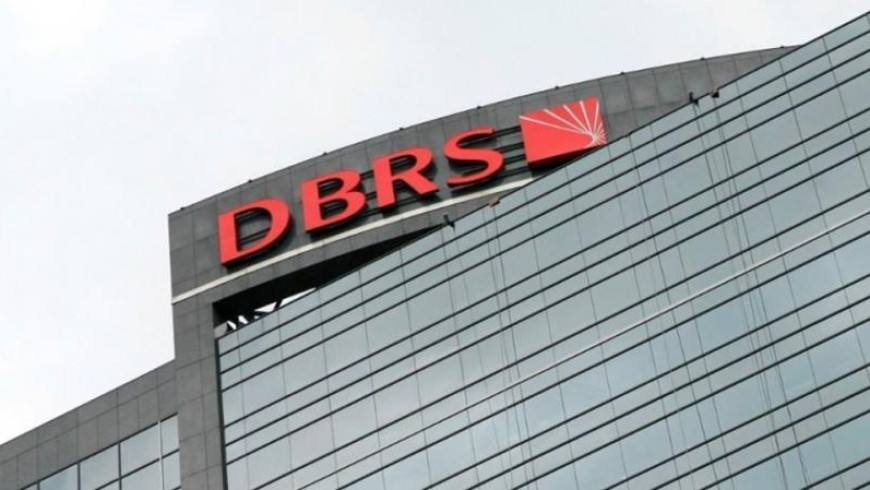
Piki: Fiscal discipline, stability and reforms are necessary
5/10/2023 9:49
Fiscal discipline, macroeconomic stability and continued structured reforms are necessary for the economy, said Deputy Minister to the President, Irene Piki, addressing on Wednesday the first Annual Conference of CBC, in the southern coastal city of Limassol. Representatives of bankers and investors, attending the event, agreed with Piki, pointing out the necessity for credibility, stability and sustainability.
The Deputy Minister talked during the second panel of the conference, titled "Cypriot economic outlook and opportunities". Panikos Nicolaou, chairman of the Board of Directors of the Cyprus Bank Association and Evgenios Evgeniou, chairman of Invest Cyprus were the other two panelists.
Piki noted that the Central Bank of Cyprus and independent national authorities play a crucial role in maintaining economic and financial stability, in the face of global inflationary pressures.
"In this environment, there is increased pressure on the government to take action to mitigate the negative impact on the economy for both people and businesses. The weight on the decision-makers is intensified by the complexity of the current inflationary crisis", she said, highlighting that the government needs to weigh carefully its decisions to strike a balance between a responsible fiscal policy, macroeconomic stability and protection of the social fabric.
Regarding the latter, she noted that the President's program has a people-centric approach, which is applied across all reforms and investments and short-term support measures for vulnerable and middle-class households and SMEs.
Piki referred to two important milestones in recent days. The first one, she said, is the approval of the state budget for 2024 by the Cabinet. She said that it is structured around a macroeconomic analysis that talks about a growth rate in 2024 estimated at 2.9%. She also added that the 2024 budget prioritises strengthening social spending and implementing development projects and reforms outlined in the Recovery and Resilience Plan while maintaining fiscal discipline. Fiscal surplus for 2024 has been estimated at 2.2% of GDP with a medium-term goal of public debt below 60% by the end of 2026, she noted, adding also that the new budget has a very limited increase of public sector positions.
The second milestone, she said, was the upgrade of the Cyprus economy by two notches by Moody’s. "We need to improve even further, regarding our investment grade", she said, pointing out that this upgrade has been achieved through the sacrifices of the Cypriot people and disciplined fiscal policies in recent years, and described it as a reward of previous government policies and trust to the current one.
"There are still risks we need to address. We need to be very prudent in all our policies", she said, highlighting once again that fiscal discipline, macroeconomic stability and continued structured reforms are necessary.
Asked regarding the measures taken by the government to assist the vulnerable to cope with high prices and what the future plans are, Piki said that one of the main issues was COLA, where an agreement was reached and it is considered an important measure, in order to help workers and their purchasing power. There are also the targeted measures on electricity for vulnerable people and farmers, she said, underlining the importance for targeted measures instead of horizontal ones, in order for the fiscal policy to follow the monetary policy.
Also, she mentioned that the government discusses now very targeted measures, like "photovoltaics for everybody" to deal with the electricity costs. “We have to stay on a prudent fiscal policy stance and that is what we are aiming to do”, she repeated.
A resilient banking sector
Panicos Nicolaou, chairman of the Board of Directors of Cyprus’ Bank Association, in his speech, noted the resilience of Cyprus' banking system that has improved steadily all these years. "The banks restructured their operations, we shrunk our balance-sheets, we deeply reduced our non-performing exposures, the liquidity is significantly improved, as well as the capital adequacy. We focused mainly on Cyprus scrapping the overseas exposures. Profitability is improving, as higher interest rates unlock the value of large and stable liquid assets and solid deposits", while provisions are reducing as a result of a better portfolio quality, he said.
Cost-to-income ratio has decreased, but on an average remains relatively high, he said, noting that high profitability leads to better access to capitals, lower cost and improvement of internal capital generation, that helps absorbing any future risks.
Additionally, loan quality risks are moderated by relatively strong growth, low unemployment and the recovery of the tourism sector. The country’s ratio of NPLs was 9% in April, but half of these are restructured and the coverage ratio is 54%, which is relatively high, he went on.
Active private indebtedness - that is the bank loans to residents - are just €21 billion, equal to 72% of GDP, he said, which is the lowest it has ever been. According to Nicolaou, this reduces vulnerabilities and reinforces resilience in times of crisis.
Furthermore, the capital adequacy of the banking system is the highest it has ever been with Tier 1 ratios almost 20% as of December 2022.
"We operate in a very liquid market. The deposits are €52 billion, out of which €42.5 billion are local. If we compare this with loans, we have double deposits than loans".
Nicolaou noted that on Tuesday Moody’s upgraded some banks to the investment grade as well, for the first time after more than 12 years.
Regarding challenges the banking sector is facing, he said that high interest rates mean elevated risks. "We need to understand our financial vulnerabilities. I am positive because there are indicators that point toward a more positive outlook", he said, adding", however, that "we need to remain vigilant for downside risks. We are not at the end of the crisis, uncertainty is high".
Asked about what banks can do regarding the high spread between lending and deposit rates, he noted that most housing loans in Cyprus have floating interest rates that rise automatically when ECB rises its rates. On the other side, he said that we have a very liquid market and this naturally delays the transmission of the monetary policy in deposit rates. That is why there is a high spread, he said.
"I expect this spread to decline in the near future, because we are approaching the peak of the increase of the rates and at the same time, the new loans are priced lower than the existing loans, with 3-4%. At the same time, banks offer higher deposit rates, and this will continue, so in a couple of months the spread will decline", he said, noting that the Bank of Cyprus projects that 50% of the ECB rate will be passed to its depositors gradually by June 2024.
He also noted that NPLs have not shown an increase yet due to interest hikes. On the contrary, he pointed out that people are prepaying their loans faster than normal, in order to avoid high interests.
Sustainable investments
Evgenios Evgeniou, chairman of Invest Cyprus, said that the objective of monetary policy is to cool down the economy and bring down inflation, while Invest Cyprus' task, is, despite that, to promote the country to attract investments, to facilitate new investments and to stay in touch with investors.
He noted that there are some useful instruments regarding economic growth in Cyprus, referring to Vision 2035, with 242 actions needing to be executed and the Recovery and Resilience Plan.
"Our priorities are aligned with these two plans and there are two pillars", he said. The first is the National Strategy to attract to Cyprus high specialization companies and talent. The objective is not only to bring to Cyprus thousands of highly paid employees, which has happened over the last two years, he said, but also to bring companies that create a more diversified economy, make it more resilient to external shocks and drive knowledge transfer to the economy in the effort to move faster, as far as digital and green transitions are concerned.
Cyprus has been very successful in attracting businesses lately, he said, noting that this growth has contributed significantly to economic growth in 2022 and 2023 and this is cited also by Moody’s in the recent upgrade, by the IMF and CBC.
The second pillar focuses on attracting to Cyprus investments for green field projects that are in the space of the green and digital transition of the country, Evgeniou noted.
"It is clear that with monetary tightening and fiscal discipline, it is going to be increasingly difficult for governments to tap the market for fresh financing to finance infrastructure projects. On the contrary, especially in Cyprus, we need to stay disciplined and on a trajectory of reducing debt. Therefore, foreign investments become much more critical in terms of continuing to have infrastructure projects in the country", he said.
Asked if the foreign investments in Cyprus are sustainable and what challenges emerged from this inflow, he said that the investors present a capacity problem in the economy as a challenge, referring to the lack of housing availability and lack of positions in English-speaking schools. This poses a limitation for new companies to come to Cyprus, but more importantly for the existing companies to continue to grow, he noted.
Furthermore, he pointed out that digital transition needs to move faster in the country both in the public and private sector and he also referred to the need for digital up-skilling of the country’s workforce. He said that this also links to the educational reform necessary, in order to provide children the digital and soft skills necessary to thrive in an economy where technology and AI will take over many of the mundane tasks.














 3287.99
3287.99 1275.09
1275.09
